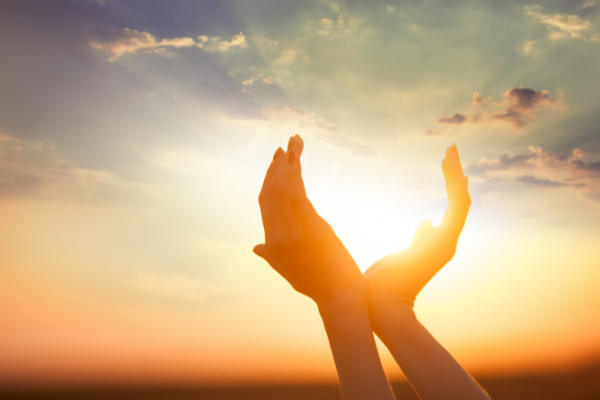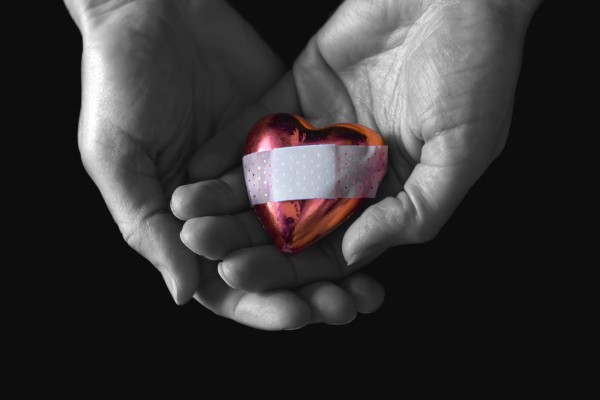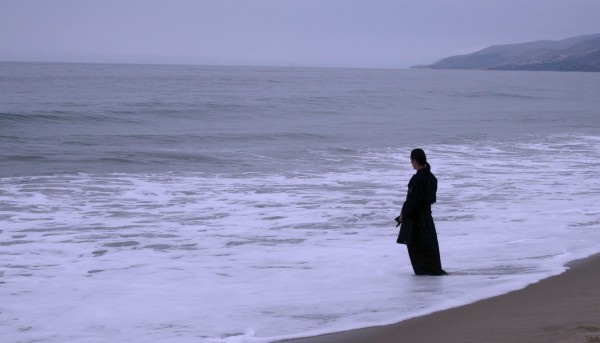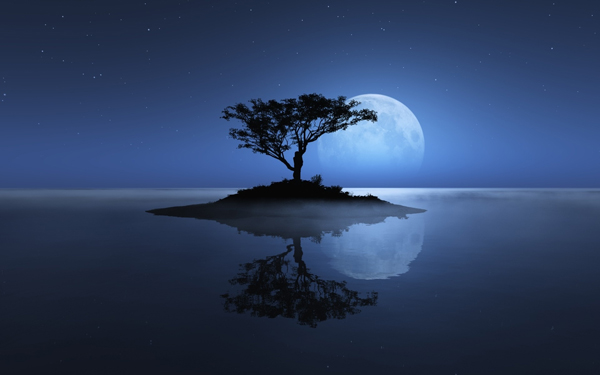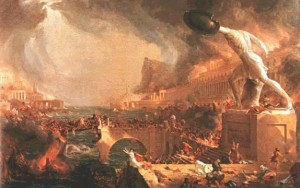A Tough Truth to Swallow:
“Nobody needs you. Seriously, you’re not that important so get over it.”
We often find ourselves overwhelmed, carrying the weight of responsibility, convinced that without us, everything we hold dear—our families, loved ones, careers, and businesses—would crumble. This belief, while deeply ingrained in us, is a source of immense stress and anxiety. But the reality is far different: life goes on, with or without us. The uncomfortable truth is that all things, and all people, are ultimately replaceable. When we are no longer here, our families, children, spouses, and businesses will continue. They may not function exactly as we would have envisioned, but they will endure, adapt, and move forward.
Understanding this is both humbling and liberating. It encourages us to shift our focus from the fear of what will happen in our absence to the blessing of the present moment. We are here, now, and that is a gift. Instead of being consumed with worry over the future, we should embrace today with gratitude, do our best to live joyfully, and help those around us. What matters most is the quality of the time we have, not the fear of how things will unfold once we’re gone.
However, accepting this truth is no easy task because it forces us to confront and dismantle our ego. Much of our self-worth is tied to the belief that we are essential, that our value is defined by how many people rely on us. We measure our importance by the roles we play—provider, caretaker, leader—and the belief that others would be lost without us. But once we strip away this illusion, we see that while people may want us around, their ultimate happiness, survival, and success don’t depend on us. Their lives, their joy, their sorrow—all of it—is a reflection of their own choices and self-determination.
This isn’t to suggest that our presence doesn’t matter or that our contributions don’t have significance. We are social beings, and our connections to others are meaningful. But recognizing that we are not the cornerstone of anyone’s existence allows us to approach life from a place of freedom rather than fear. It enables us to love and support others without being weighed down by the crushing responsibility of thinking that everything depends on us.
So, the challenge lies in letting go of the ego, in dissolving the false narratives we’ve built about our irreplaceability. This doesn’t mean we shouldn’t care for others or neglect our responsibilities. On the contrary, when we release ourselves from the illusion of being indispensable, we free ourselves to truly give, to be present without the burden of fear. And in doing so, we can experience life more fully, savoring the present, doing our best, and trusting that the future—whether we are here or not—will take care of itself.
Ultimately, life is not about how many people need us. It’s about how we show up in the moments we’re given. It’s about living with purpose, helping others from a place of love, and accepting that while our presence is valuable, it is not the foundation on which everything rests. Life, and the lives of those we love, will continue, shaped by their own strength, resilience, and choices.
The more we accept this, the more we can release ourselves from the weight of unnecessary guilt and pressure, and live with greater peace, joy, and fulfillment.
This truth hit me hard during an emotional moment with one of my students. Overwhelmed by the crushing weight of guilt and responsibility, he broke down in tears and said something that I will never forget: “I hate my parents. I want to die, but I can’t because I have to take care of them.” His words, born out of pain, encapsulated the internal conflict many endure—especially firstborn sons raised in traditional cultures. The idea of being bound by duty, trapped between personal desires and familial obligations, can become an unbearable burden. His confession echoed something I’ve encountered in my own life: the conflict between personal fulfillment and meeting the expectations of those who raised and shaped us.
This incident forced me to reflect deeply on my own experiences. I, too, have struggled with the weight of responsibility. I know all too well the feeling of being inadequate, knowing that no matter how hard I try, I may never completely meet my parents’ expectations. It’s a suffocating pressure, one that can turn love and respect into feelings of guilt and even resentment. But as I reflected on my student’s words, I realized that I never want my sense of responsibility to become the source of my own pain or misery. I refuse to let it destroy my inner peace or steal my joy.
Many people, unable to cope with this heavy burden, fall into a cycle of blame. They point fingers at their parents, accusing them of being the source of their misery. Some sink so deeply into this despair that they carry it with them into adulthood, growing resentful and, in extreme cases, suicidal. But I have chosen a different path. I realize now that it’s not our parents’ fault for wanting the best for us. They raised us with the hopes of giving us a better life than they had. It’s natural for parents to want to see their children succeed, but the weight of those expectations can sometimes become overwhelming.
Instead of blaming them, I choose to love and accept my parents for who they are—flawed, human, and doing their best with the tools they had. But more importantly, I recognize that I am responsible for how I interpret and carry my obligations. The burden of responsibility is not inherently destructive; it’s the way we perceive it that matters.
So, I decided to shift my mindset. Instead of telling myself, “I have to take care of my family”, “I have to work”, or “I have to care for my children”, I began telling myself “I choose to do these things”. This shift is subtle, but its impact is profound. It changes the narrative from one of obligation to one of empowerment. By reframing responsibilities as choices, we restore our agency. Instead of feeling trapped, we can embrace our roles with purpose and positivity.
This mental shift also helps us realize that the energy we put into the world shapes our experience. Negativity breeds more negativity, creating a vicious cycle of resentment and discontent. Conversely, positivity attracts more positive outcomes, reinforcing a healthier outlook on life. Life may not be a literal magnet, but our attitude certainly influences the way we navigate it. When we choose to approach our duties with a sense of agency and gratitude, the burdens don’t disappear—but they do become more manageable.
That said, I am not advocating for abandoning our responsibilities or only seeking personal happiness. True fulfillment comes from serving others, especially when we do so selflessly. What I’m suggesting is that we release ourselves from the inner pain of feeling like we’re failing if we don’t meet every expectation placed on us. The guilt we carry from not being able to fulfill every role perfectly is what often drains us.
To effectively care for others, we must first find contentment and peace within ourselves. If we are not happy, if we are consumed by guilt or weighed down by unrealistic expectations, we can’t give our best to those who depend on us. Instead of agonizing over what might happen without us or worrying about falling short, we need to focus on taking meaningful action. Worry is an endless loop—it doesn’t solve problems. Only action can lead to real change.
For me, this journey has led to one of my hardest realizations: accepting that the things I hold most dear, like Hwa Rang Do, will exist and continue without me. It’s difficult to accept that the legacy I’ve spent a lifetime building will go on after I am gone. But this realization has also brought me a sense of peace. Instead of fighting against it, I’ve chosen to embrace it. I now focus my energy on ensuring that my legacy not only survives but thrives, even in my absence.
This shift has allowed me to let go of the fear of being replaced or forgotten. It has opened the door to greater clarity, allowing me to focus on the present and to build something enduring—something that will continue to inspire and uplift others long after I am gone.
By reframing our sense of duty as a choice and freeing ourselves from guilt, we allow ourselves to serve those we love with a full and open heart. Rather than being a source of pain, our responsibilities can become a pathway to fulfillment and joy. It all starts with changing how we see the weight we carry.
In my younger years, the weight of expectations was a driving force. It fueled my ambition, pushing me to achieve, to surpass every obstacle, and to strive for greatness. The burden was heavy, but I wore it as a badge of honor, convinced that fulfilling those expectations was not only necessary but noble. At the time, it seemed that my self-worth depended on how much I could accomplish, how well I could meet the standards set by others—be it my parents, my mentors, or even society at large. I believed that the harder I pushed, the more worthy I would become.
But now, as I reach mid-life, I’ve come to realize that this same drive, which once propelled me forward, has transformed into an anchor, pulling me down into the depths of doubt, exhaustion, and disillusionment. The ambition that once filled me with purpose has, over time, turned into a constant reminder of how much further I have to go—how impossible it is to meet everyone’s expectations, including my own. The weight I once carried proudly has now become a burden, sinking me slowly like a ship taking on water.
I see clearly now that much of my unhappiness stems from clinging to these impossible expectations—those imposed on me and those I’ve imposed on myself. The constant striving to be more, to do more, to be everything for everyone has drained me of joy and left me feeling inadequate, no matter how much I achieve. It’s as if I’ve been aboard the Titanic, believing that if I just worked hard enough, I could somehow save the ship from sinking. But the truth is, no amount of effort can keep it afloat because the ship was destined to sink under the weight of those unrealistic demands.
So, I’ve made the conscious decision to cut myself free from this sinking ship. I am choosing to let go of the need for perfection, the need to meet every expectation, the need to be everything for everyone. I realize now that this constant striving, this relentless pursuit of external validation, was never going to lead me to fulfillment. Instead, it only ensured that I would keep chasing an elusive goal, always out of reach.
Now, I am beginning to build a new ship—one that isn’t weighed down by the burdens of the past, by the need to prove myself, or by the pressure to meet impossible standards. This new ship is crafted from hope, reconciliation, and acceptance. Hope for the future, not as something to be feared, but as something to embrace. Reconciliation with my own limitations, with the understanding that I am enough as I am, and that my worth isn’t tied to how much I achieve or how perfectly I fulfill others’ expectations. And most importantly, acceptance—acceptance of myself, of my journey, and of the fact that life’s true meaning isn’t found in meeting every demand placed on us, but in living authentically and with purpose.
Letting go of this burden doesn’t mean abandoning my responsibilities or giving up on striving for excellence. It means no longer allowing the weight of external pressures to define me. It means moving forward with a clearer sense of who I am and what truly matters. I now focus on building a life that reflects my values, not just the expectations of others.
This process of letting go and rebuilding isn’t easy. It requires unlearning deeply ingrained beliefs and reimagining what success and fulfillment look like. But I’m committed to this new journey—a journey where peace, love, and humility guide me, instead of fear, pressure, or the never-ending chase for approval.
I am still striving, but for something different now. I strive to live a life of meaning and connection, rooted in self-compassion and understanding. I strive to build something that isn’t just about external success, but about internal peace. This is the new ship I am crafting, and it will carry me forward—lighter, freer, and more aligned with the life I truly want to live.
And all of this became possible only when I embraced the humility to surrender to the Will of God—a humility that didn’t come easily or quickly, but one that I’ve gained through the hard-earned wisdom of half a century of struggle. Over the years, I’ve fought, resisted, and at times even rebelled against the currents of life, convinced that sheer willpower and determination alone could lead me to fulfillment. But it was only when I finally let go of the illusion of control—when I surrendered to something greater than myself—that I began to understand the deeper purpose for which I was created.
Surrendering to God’s will doesn’t mean abandoning effort or resigning oneself to fate. Rather, it is about aligning my heart, my intentions, and my actions with a higher, unshakeable Truth—a Truth that is constant, like the North Star, guiding me through the storms of life. Without this firm belief, without the foundation of Truth, it doesn’t matter how far or fast we travel, how much we strive, or how hard we push; we remain adrift in an endless ocean of uncertainty. We may expend tremendous energy and cover great distances, but without that inner compass, we are like a ship without a destination—always moving, but never arriving.
For years, I was that ship—pushing through the waves, traveling far and wide, but never finding a true port of peace. The exhaustion of trying to navigate life on my own terms, under my own limited understanding, left me weary and disillusioned. I was always reaching for something just beyond my grasp, always chasing a horizon that seemed to retreat the closer I came to it. It wasn’t until I surrendered to God’s purpose for me—until I acknowledged that His plan is far greater than my own—that I began to feel anchored and steady, no longer lost at sea.
This surrender isn’t passive; it’s an active, daily commitment to trust in the divine wisdom that orchestrates the universe. It requires faith in the unfolding of life, even when I cannot see the full picture. It requires humility to accept that I am not the master of my own destiny, but rather a vessel, guided by a purpose that transcends my own desires, ambitions, or fears. And it requires courage to let go of the need for control, to stop clinging to the familiar but futile pursuit of external validation, and instead to trust that I am being led exactly where I need to be.
Through this surrender, I have found a sense of peace that I never knew was possible. It is a peace that comes not from the absence of challenges or struggles, but from the deep, abiding knowledge that I am on the right path—that I am moving toward a destination that is meaningful, eternal, and aligned with the purpose for which I was created. And this purpose is not something I can fully understand with my limited human mind; it is something that I trust with my heart and soul.
Without this foundation of Truth, life becomes an endless chase—always striving, always seeking, but never finding. We can travel far, we can work tirelessly, and yet without that inner compass, we remain lost, adrift in a sea of confusion, endlessly searching for something we can never attain on our own. The more we strive to control the outcome, the further we drift from the peace we seek. But when we anchor ourselves in God’s will, when we allow Truth to guide us, we find that we no longer need to chase; instead, we are drawn naturally toward our true purpose.
This is the profound realization that has transformed my life. It has allowed me to stop battling the waves and instead navigate with grace, trusting in the direction I am being led. And with this trust comes a freedom I never imagined—a freedom from the weight of unrealistic expectations, a freedom from the pressure to constantly prove myself, and a freedom from the fear of failure. I no longer need to fear drifting aimlessly because I am anchored in something far greater than myself. I am anchored in God’s purpose for me, and that is where I find my peace, my direction, and my fulfillment.
With love, peace, honor, and humility,
Grandmaster Taejoon Lee
